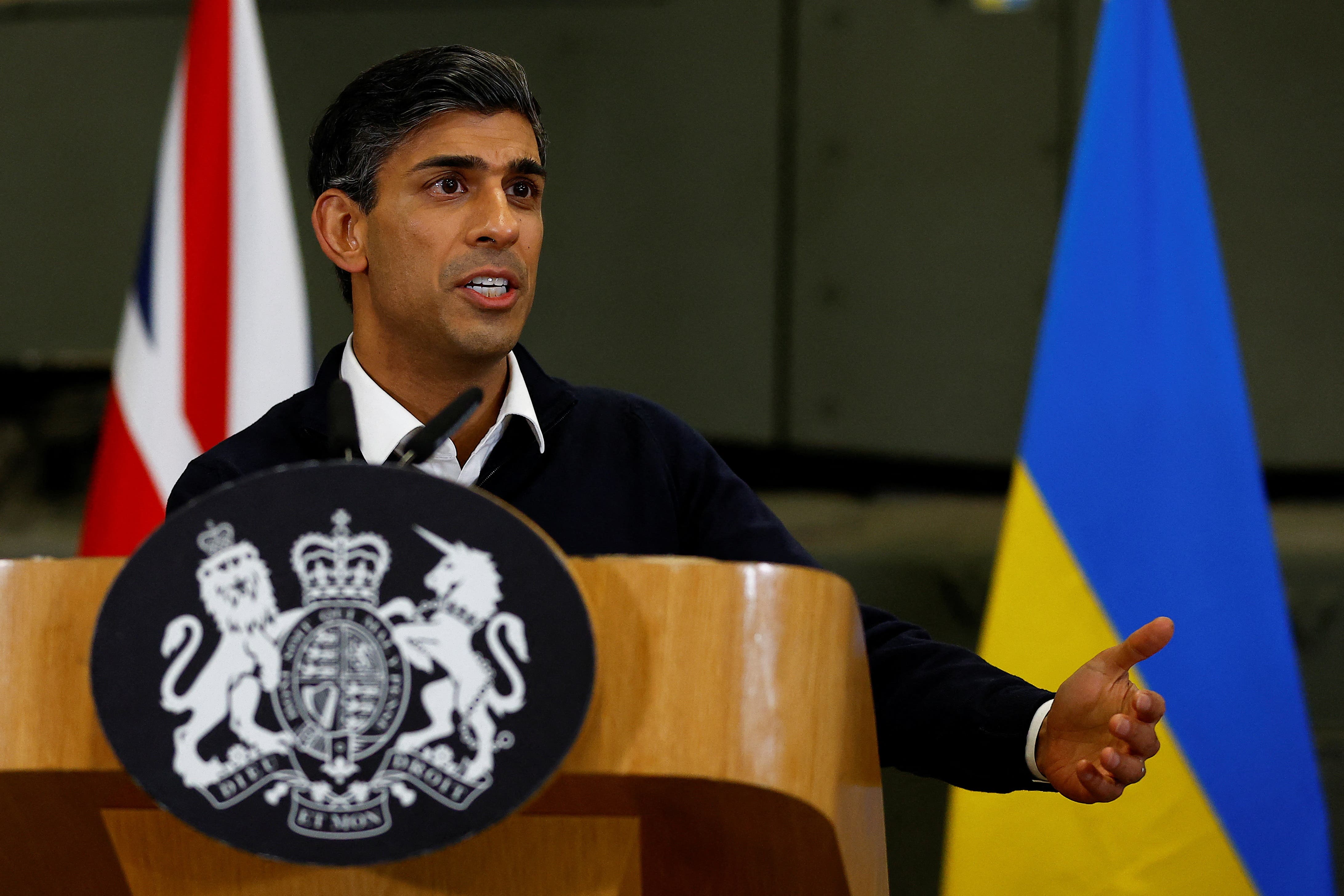Will the real Rishi Sunak please stand up?
The prime minister wants to appeal to working-class authoritarians as well as middle-class liberals, writes John Rentoul


Liberal Britain is up in arms. How could Rishi Sunak appoint this dreadful man? As an addendum to Tuesday’s reshuffle, the prime minister made Lee Anderson, the MP who said poor people could make a meal for 30p and who supports the death penalty, deputy chair of the Conservative Party.
Sound the dissonance klaxon. Sunak may have described himself as a Thatcherite, and he may have voted Leave, but his aura is “liberal Remainer”. I annoy Tories and Labour people alike by calling him a Blairite, which he is in some ways but not others. New Labour was never neoliberal, as David Blunkett protested this week when he came to talk to our students at King’s College London, but Sunak could be. He does want tax cuts and a smaller state; it is just that he was driven by events and public opinion to manage the biggest state intervention in the lives of citizens since the war.
Anderson has a different aura. He is one of those working-class people that the young Sunak admitted he didn’t have as friends. He was a Labour councillor and worked for Gloria De Piero, the Labour MP for Ashfield, the constituency which he now represents for the Conservatives.
Tory members love him because he takes the fight to the enemy. These include sanctimonious Labour MPs. One of his notable moments in the Commons was his silent heckle of Anneliese Dodds, who was lecturing the Boris Johnson government about parliamentary standards. Having intervened to point out that seven Labour MPs from Labour’s time in government had gone to jail, he sat holding up seven fingers while Dodds carried on speaking.
He confronts Steve Bray, the anti-Brexit protester who blasts parliament with loud music and loudspeaker denunciations of “the Tory party – liars, cheats and fraudsters”. Their altercations are filmed and posted on social media, where they serve both sides’ purposes well.
And he supports the death penalty, as most Tory members do – 53 per cent in a recent YouGov survey. Sunak doesn’t. The prime minister was asked about it on a photo opportunity at a “family hub” today: “That’s not my view; that’s not the government’s view.”
Mind you, it wasn’t so long ago that Margaret Thatcher, an actual prime minister, supported the death penalty, but accepted that it was an issue of conscience and that her government wouldn’t do anything about it.
So what is going on? At one level, it is simple. A majority of Tory party members also voted for Liz Truss in the leadership election against Sunak in the summer. The prime minister has a problem with his grassroots, large numbers of whom think he is an interloper imposed on them by a conspiracy of globalist MPs. Greg Hands, the new party chair, is a London MP, a Remainer and a loyalist. Sunak balanced him by appointing Anderson, who, among his many other crimes against liberal reasonableness, backed Truss in the final ballot against Sunak (and then Boris Johnson in his aborted comeback in October).
But beyond such cynical politics, does Anderson’s appointment make sense? If Sunak’s strategy is calm competence, why promote a plain speaker who will have to be disowned every other week? If the Tories are trying to defend liberal blue wall seats in the south, why appoint an authoritarian red waller who will put those voters off?
There is a serious answer, I think, which is that all parties are coalitions, and all prime ministers are multiple personalities. Sunak seemed to be a refreshing change from Johnson, who is an extreme example of an inconsistent character: the politician who had to advocate Leave and Remain to work out which he preferred.
But Sunak contains multitudes, too. I think he is more serious about withdrawing from the European Court of Human Rights if necessary than David Cameron, Theresa May and Johnson ever were – and they all threatened to do so.
He wants to appeal to working-class authoritarians as well as middle-class liberals: Blair and Johnson showed that it is possible. And if Sunak fails, it won’t be because Anderson has upset the tender liberal consciences of suburban graduates, but because the government has failed to persuade voters of all ideological stripes that it can run the country competently.



Join our commenting forum
Join thought-provoking conversations, follow other Independent readers and see their replies
Comments